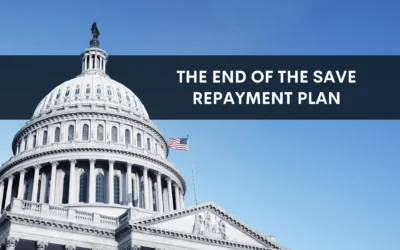Greetings students and graduates! Welcome to DWOQ’s inaugural blog posting. I assume you’re here to learn more about the student loan marketplace, how it’s changing, and what you can do to ensure that your repayment strategy is both current and relevant in the context of your financial goals. To this end, I won’t bore you with salesmanship other than to suggest that DWOQ exists as an advocate to early-career graduate health professionals in the student loan marketplace.
There are a couple of items I wanted to share with you all today, and one in particular that actually inspired me to drop everything else I’m doing and write this entry:
Recently, a client of ours contacted their loan servicer to discuss entering the Pay As You Earn program. She has $300k in debt and her household income is $90k. The representative at this loan servicer – which I will not name in this forum – TOLD HER SHE WAS NOT ELIGIBLE FOR PAYE.
I will never understand why such grossly inaccurate information is shared with borrowers every day. While $90k is a generous income that wouldn’t constitute “hardship” for many professionals, it is decidedly challenging for someone with $300,000 of debt at roughly 7% interest.
Some of the misinformation borrowers receive will cause them to enter the wrong repayment plan, or go to the private marketplace and thus give up federal loan benefits. Now, PAYE is not always the best solution, but misinformation about these programs makes it all the more confusing and complex. As a result, borrowers end up losing potential savings that might not be available later, as well as access to their income, and the servicer loses revenue. Everybody loses.
So, the moral of the story is… know your strategy, the programs you’re eligible for, and what you wish to accomplish when you’re contacting your loan servicers. Save your documentation, you might need it later. And whether it’s DWOQ or another resource out there, make sure you’re getting advice from an advocate who understands the marketplace, how it’s changing and has no conflicts so that they are incented only to give you the best advice about managing your loans.
Ok, next topic… in every presentation we’ve given this year to date, questions have arisen about the proposed changes in Obama’s recent budget proposal. So I’ve summarized the key items as they relate to graduate health professionals, and in particular those who do residencies with non-profit entities where income is modest and debt is substantial for some time:
- Expanding of PAYE to all federal loan borrowers by Dec 2015
- Removing the cap on payments (no longer 10-year standard for high income earners)
- New cap on amount forgiven through PSLF ($57,500 limit, based on max borrowing amount for independent undergrads. Balances above $57,000 will not be forgiven until 20-25 years of participation)
- Household income used for documentation regardless of Married Filing Separately
- 20 and 25 year forgiveness options to be tax-free
There are many opinions and precedents around what changes might happen, and who they should or would apply to. We are keeping apprised of all of this and aim to keep you informed so that you can recalibrate your strategy appropriately if any changes impact you.
If you’d like to schedule a consultation with our Advisory team, or you’re wondering if private loan refinancing might make sense for you, just visit the consultations tab of this site, or contact us at help@slplive.wpengine.com.
I just realized that I never introduced myself, how rude. I’m Jason, Founder & Executive Director of DWOQ, and tireless student of this marketplace myself. Thanks for reading.
’til DEBT do us part,
Brandon Barfield is the President and Co-Founder of Student Loan Professor, and is nationally known as student loan expert for graduate health professions. Since 2011, Brandon has given hundreds of loan repayment presentations for schools, hospitals, and medical conferences across the country. With his diverse background in financial aid, financial planning and student loan advisory, Brandon has a broad understanding of the intricacies surrounding student loans, loan repayment strategies, and how they should be considered when graduates make other financial decisions.



